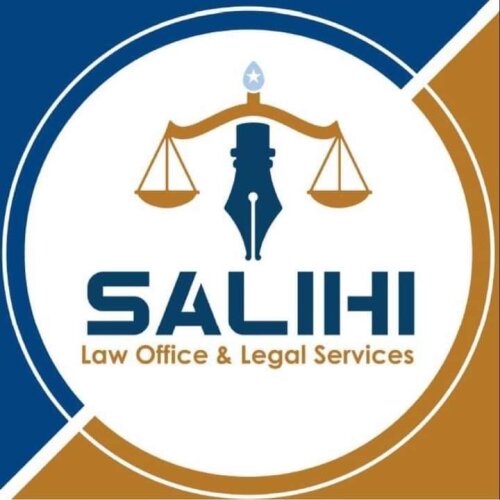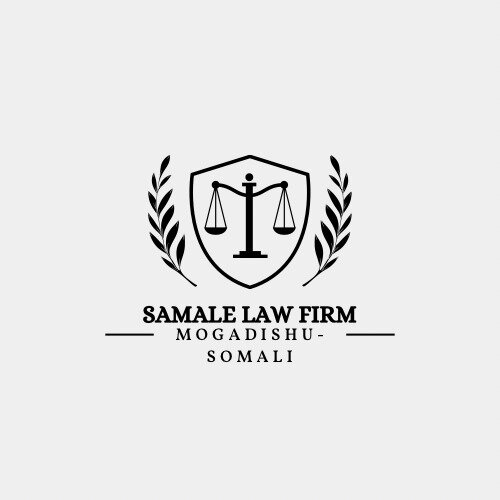Best Renewable & Alternative Energy Lawyers in Somalia
Share your needs with us, get contacted by law firms.
Free. Takes 2 min.
Or refine your search by selecting a city:
List of the best lawyers in Somalia
About Renewable & Alternative Energy Law in Somalia
Somalia has abundant potential for renewable and alternative energy, especially solar and wind power, due to its geographic location and climate. With decades of civil conflict severely impacting the traditional energy sector, there has been a growing focus on developing sustainable energy solutions. The Somali government, with support from international partners, is working to establish a legal and regulatory framework to support private investment and public-private partnerships in renewable energy. As the country rebuilds, balancing energy access, environmental sustainability, and economic development is a key priority.
Why You May Need a Lawyer
The renewable and alternative energy sector in Somalia is evolving rapidly but is still marked by legal complexities. Here are common situations where legal assistance is essential:
- Advising businesses on obtaining licenses or permits for renewable energy projects.
- Assisting with land acquisition, leasing, or dispute resolution for energy project sites.
- Drafting or reviewing contracts with suppliers, partners, or government agencies.
- Navigating environmental impact assessments and compliance requirements.
- Protecting intellectual property or proprietary technology in local energy projects.
- Resolving disputes relating to project financing or joint ventures.
- Clarifying obligations under evolving regulatory policies and government incentives.
- Ensuring community rights and benefits in large-scale energy projects.
Local Laws Overview
In Somalia, the legal framework for renewable and alternative energy is still developing. Some important aspects include:
- The Ministry of Energy and Water Resources is the primary government body overseeing renewable energy.
- The Renewable Energy Act, yet to be fully ratified and implemented, is expected to set out key licensing and regulatory requirements for operators.
- Environmental protection laws must be adhered to, including carrying out environmental and social impact assessments on major energy projects.
- There are local and regional regulations regarding land use, land rights, and community consultation, especially relevant in project planning.
- Somalia maintains various bilateral and regional agreements supporting cross-border energy trade and investment.
- International guidelines may apply to projects funded or supported by development agencies or foreign investors.
- Tax incentives or customs exemptions may be available for importing renewable energy equipment, subject to government approval.
Frequently Asked Questions
What types of renewable energy are most widely used in Somalia?
Solar and wind power are the most commonly used and have the greatest potential due to Somalia's climate and geography. Some communities also use small-scale biomass and hybrid systems.
Is there a law governing solar or wind energy investments?
Somalia is in the process of developing comprehensive renewable energy laws. A draft Renewable Energy Act exists, but various sector guidelines and licensing requirements already apply.
What permits are needed to start a renewable energy project?
You typically need permits from the Ministry of Energy and Water Resources, local authorities for land use, and may require environmental assessment approvals depending on the project size.
Are there incentives for renewable energy businesses?
The government, with international partners, is considering tax breaks and customs incentives for renewable energy investments though details depend on project type and approval.
How are land rights handled for renewable energy projects?
Land tenure in Somalia can be complex, involving customary, private, and public systems. Legal advice is recommended to clarify and secure land rights before project development.
Is off-grid solar legal in Somalia?
Yes, off-grid systems are legal and increasingly encouraged to expand electricity access in rural and urban areas lacking reliable grid connections.
Who regulates environmental impact for renewable projects?
Environmental impact assessments are overseen by the Ministry of Environment and Climate Change, in coordination with the Ministry of Energy and Water Resources.
Are foreign investors allowed in the renewable energy sector?
Yes, foreign investors are currently permitted and encouraged, though they must comply with national investment laws and obtain the necessary licenses and approvals.
What happens if there are disputes related to a project?
Disputes may be handled through negotiation, Somali courts, or commercial arbitration, depending on contract terms and parties involved. Legal guidance is highly recommended.
Can communities receive benefits from local energy projects?
Yes, there is an increasing focus on community engagement and benefit-sharing agreements, especially for projects affecting local land or resources.
Additional Resources
Several organizations and governmental bodies can provide further information and support regarding renewable and alternative energy in Somalia:
- Ministry of Energy and Water Resources
- Ministry of Environment and Climate Change
- Somalia Energy Association
- United Nations Development Programme Somalia
- Somali Chamber of Commerce and Industry
- International Renewable Energy Agency advisory resources
- Local legal firms specializing in energy and environmental law
Next Steps
If you are considering investing in or developing a renewable or alternative energy project in Somalia, it is important to:
- Conduct thorough research on your specific project needs and local regulations.
- Consult with a qualified Somali lawyer who specializes in energy, land, and environmental law.
- Engage with the relevant government ministries early in your project planning.
- Ensure you obtain all necessary permits and approvals in writing.
- Include clear dispute resolution and community engagement clauses in all contracts.
- Monitor changes in local laws and regulations, as this area is rapidly evolving.
Legal guidance is crucial for navigating Somalia's renewable and alternative energy sector. Taking the right steps early will help safeguard your investment and promote sustainable energy development.
Lawzana helps you find the best lawyers and law firms in Somalia through a curated and pre-screened list of qualified legal professionals. Our platform offers rankings and detailed profiles of attorneys and law firms, allowing you to compare based on practice areas, including Renewable & Alternative Energy, experience, and client feedback.
Each profile includes a description of the firm's areas of practice, client reviews, team members and partners, year of establishment, spoken languages, office locations, contact information, social media presence, and any published articles or resources. Most firms on our platform speak English and are experienced in both local and international legal matters.
Get a quote from top-rated law firms in Somalia — quickly, securely, and without unnecessary hassle.
Disclaimer:
The information provided on this page is for general informational purposes only and does not constitute legal advice. While we strive to ensure the accuracy and relevance of the content, legal information may change over time, and interpretations of the law can vary. You should always consult with a qualified legal professional for advice specific to your situation.
We disclaim all liability for actions taken or not taken based on the content of this page. If you believe any information is incorrect or outdated, please contact us, and we will review and update it where appropriate.
Browse renewable & alternative energy law firms by city in Somalia
Refine your search by selecting a city.










